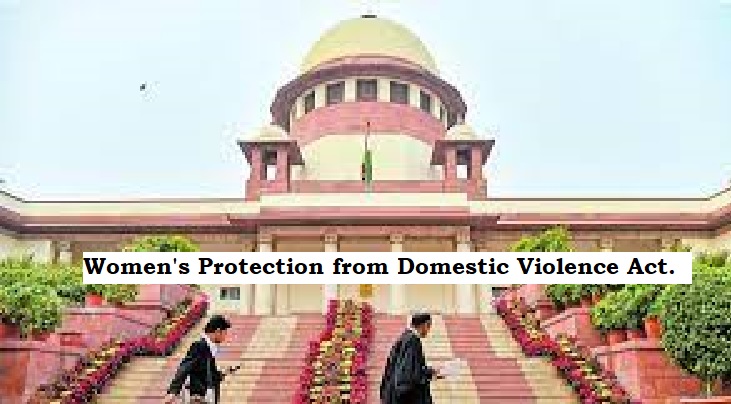


In the legal landscape of India, the Protection of Women from Domestic Violence Act, 2005 plays a pivotal role in addressing issues related to domestic violence against women. The Supreme Court of India, in its significant judgments of 2023, has actively engaged with the implementation and enforcement of this crucial legislation. One notable case that underscores the court's proactive stance is "We The Women of India v. UoI And Ors.," WP(C) No. 1156/2021, presided over by Justices S. Ravindra Bhat and Dipankar Datta.
The crux of the matter revolves around the inadequacy of Protection Officers in effectively implementing the provisions of the Domestic Violence Act across states and union territories. Recognizing the gravity of the situation, the Supreme Court directed the Secretary of the Union to convene a meeting with representatives from states and union territories. The objective of this meeting is to collectively address and rectify the deficiencies in the appointment and functioning of Protection Officers.
The term "Protection Officers" refers to designated officials responsible for safeguarding the rights and well-being of victims of domestic violence. They play a crucial role in ensuring the effective implementation of the Domestic Violence Act by providing necessary support and assistance to aggrieved individuals. However, the court's observation pointed to a systemic issue - the inadequacy of these officers in fulfilling their responsibilities across the country.
The directive from the Supreme Court is rooted in the need for a collaborative and coordinated effort between the Union and the states/union territories to strengthen the mechanisms in place for combating domestic violence. By urging a meeting, the court seeks to facilitate a constructive dialogue that addresses the existing gaps and ensures a more robust framework for the protection of women.
The case underscores the judiciary's commitment to not only interpret the law but also to actively engage in the betterment of its implementation. This approach aligns with the overarching goal of securing justice and protection for victims of domestic violence. By directing the Union to initiate a dialogue with the states and union territories, the Supreme Court acknowledges the collective responsibility of all stakeholders in ensuring the efficacy of legal safeguards.
Furthermore, the specific details of the case, including the case title and the names of the presiding Justices, provide a clear reference point for legal practitioners, scholars, and policymakers. "We The Women of India v. UoI And Ors.," WP(C) No. 1156/2021, encapsulates the essence of the litigation and distinguishes it from other legal matters.
The involvement of Justices S. Ravindra Bhat and Dipankar Datta adds a layer of credibility to the judgment. These justices, through their deliberations and decisions, contribute to shaping the legal landscape of the country. Their names are associated with the jurisprudential development and application of legal principles, especially in cases of societal significance like domestic violence.
In conclusion, the Supreme Court's directive in the case "We The Women of India v. UoI And Ors." signifies a proactive approach in addressing the inadequacies in the implementation of the Protection of Women from Domestic Violence Act, 2005. By emphasizing the need for collaboration between the Union and states/union territories, the court aims to create a more robust and effective system for the protection of women facing domestic violence. This judgment serves as a testament to the judiciary's commitment to not only interpret the law but also actively contribute to its meaningful implementation for the benefit of society.
TAGS: Legal Landscape Collaborative Effort Systemic Issues Legal Safeguards Judicial Commitment